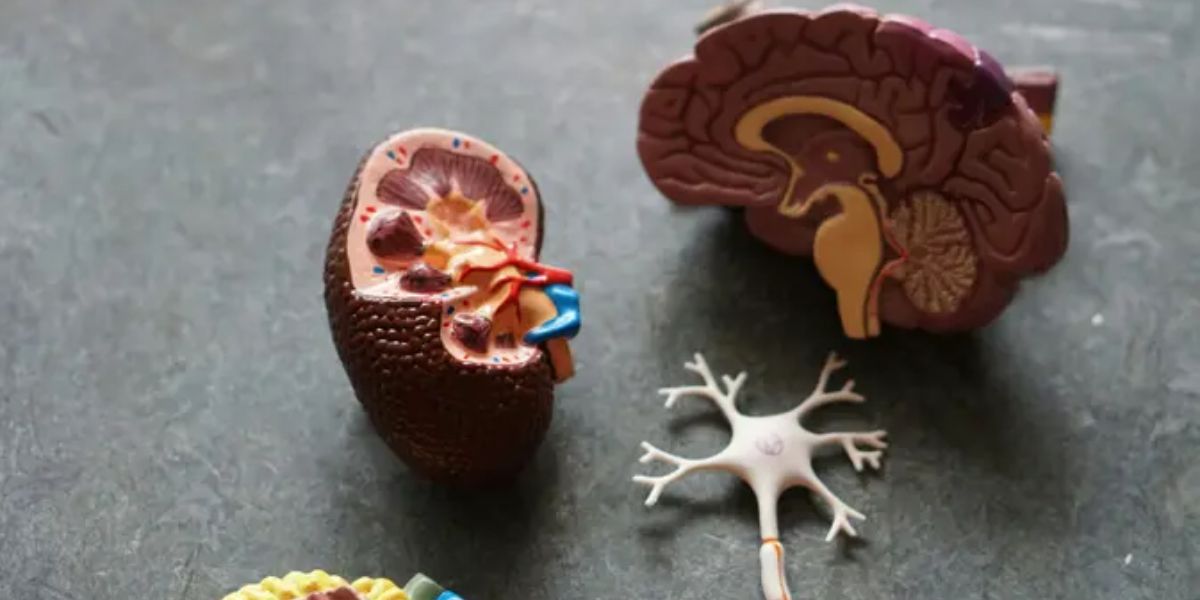Kapanlagi.com - Kidney disease often becomes a "silent killer" that does not show clear signs in the early stages. Many people only realize there is a problem when their kidney condition is already quite serious. In fact, the kidneys play a very vital role in the body, such as filtering toxins, regulating fluid balance, and maintaining blood pressure stability. Therefore, early detection and treatment are crucial to prevent permanent damage to this organ.
Various factors can trigger kidney disease, ranging from diabetes, hypertension, infections, to the long-term use of certain medications. If not addressed promptly, this disease can progress to a more severe condition, even leading to chronic kidney failure that requires the patient to undergo lifelong dialysis.
For this reason, let’s take a look at eight common types of kidney diseases, along with their causes, symptoms, and treatment methods. This information is specially compiled for you by KapanLagi.com, Sunday (30/3). Don’t wait until it’s too late, recognize and take care of your kidney health!
1. Kidney Stones: The Result of Mineral Deposits That Crystallize
Kidney stones are a condition where waste substances in urine such as calcium, oxalate, or uric acid accumulate and crystallize into solid stones that can obstruct urine flow or cause irritation and injury to the walls of the urinary tract.
This condition is usually triggered by several factors:
- insufficient water intake.
- Excessive consumption of salt and animal protein.
- The presence of metabolic disorders such as hyperparathyroidism that abnormally increase calcium levels in the body.
If the stones are small, patients may not be aware of them as they do not cause symptoms, but when the stones grow larger or begin to shift, complaints such as sharp pain in the lower back, nausea, blood in urine, or even difficulty urinating will arise.
Treatment for kidney stone disease may include:
- Drinking plenty of water.
- Medications to help pass the stones.
- Surgical procedures such as ESWL or ureteroscopy.
2. Kidney Infection: Consequences of Untreated UTIs
Kidney infection or pyelonephritis is a form of kidney disease that generally starts from a urinary tract infection that is not treated promptly, allowing bacteria to ascend to the upper tract and reach the kidneys, causing inflammation and serious infection.
This condition can develop due to:
- Obstruction in the urinary tract that hinders urine flow.
- Growth of bacteria that spreads to the kidneys, causing tissue damage.
- Disruption of the body's toxin filtering function.
The most common symptoms include back or flank pain, high fever, weakness, nausea, pain during urination, and the presence of blood or pus in the urine, and if not treated promptly, this infection can spread to the bloodstream (sepsis), which is life-threatening.
Management of kidney infection:
- Usually involves intensive antibiotics.
- Hospitalization if it has reached a severe phase.
3. Acute Kidney Failure: Occurs Suddenly and Requires Immediate Treatment
Acute kidney failure occurs when the kidneys suddenly lose their ability to effectively filter waste from the blood.
This condition is usually caused by several factors:
Severe injury.
- Excessive fluid loss (dehydration).
- Severe bleeding.
- Severe infection (sepsis).
- Toxic infection from certain medications.
This condition develops rapidly and can lead to the accumulation of harmful waste substances in the blood that disrupt the body's fluid and electrolyte balance, potentially triggering severe systemic symptoms that can be fatal if not treated promptly. Patients experiencing acute kidney failure often show symptoms such as swelling in the legs, infrequent urination, shortness of breath, weakness, nausea, and decreased consciousness.
Treatment for this condition includes:
- Fluid control.
- Administration of medications based on the underlying cause.
- Low salt and potassium diet.
- Temporary dialysis if the condition worsens.
4. Chronic Kidney Failure: Gradual Decline in Kidney Function
Chronic kidney failure is a long-term condition characterized by a gradual decline in kidney function over a period of more than three months.
This disease is most often caused by:
- Hypertension.
- Uncontrolled diabetes.
The process of damage occurs gradually without clear symptoms initially, but as kidney function declines drastically, patients begin to experience symptoms such as fatigue, swelling in the legs or face, nausea, itchy skin, muscle cramps, difficulty sleeping, and decreased appetite.
Management of chronic kidney failure involves:
- Medications to slow the progression of kidney damage.
- Control of blood pressure and blood sugar.
- Dietary changes to a low-protein diet.
- In advanced stages, regular dialysis or kidney transplantation is required as a final solution.
5. Diabetic Nephropathy: Complications of Uncontrolled Diabetes
Diabetic nephropathy, a serious condition caused by prolonged diabetes, unexpectedly damages the kidneys. High blood glucose levels attack the small blood vessels in the kidneys, disrupting the filtration system that is supposed to filter waste from the blood. As a result, the risk of chronic kidney failure increases, and patients also face additional problems such as high blood pressure, fluid retention, and electrolyte disturbances that worsen their health. Common symptoms include foamy urine due to protein leakage, swelling in the limbs and face, weakness, itching, sleep disturbances, and difficulty concentrating. Management for this condition involves strict blood sugar control, a low-salt and low-protein diet, and dialysis therapy if kidney function drastically declines.
6. Nephritic Syndrome: Inflammation of the Kidney Glomeruli
Nephritic syndrome is a kidney disorder that arises due to inflammation of the glomeruli, the vital part of the kidney responsible for filtering blood. The causes are varied, ranging from streptococcal infections, autoimmune diseases like lupus, to genetic disorders that affect the immune system. When the glomeruli become inflamed, the blood filtering process is disrupted, allowing blood and protein to leak into the urine, triggering characteristic symptoms such as blood in the urine, swelling in the face and legs, and high blood pressure. Additionally, patients may also experience systemic symptoms such as fever and abdominal pain. The management of nephritic syndrome involves the use of medications to suppress immune system activity, implementation of a low-salt diet, and regular monitoring of blood pressure and kidney function. In severe cases, kidney replacement therapy such as hemodialysis may be necessary to restore optimal body function.
7. Nephrotic Syndrome: Protein Leakage in Urine
Nephrotic syndrome is a chronic kidney disorder that disrupts the body's balance by increasing protein levels in the urine due to damage to the glomerular walls. The causes can vary, ranging from infections to systemic diseases such as diabetes or lupus, as well as structural abnormalities of the kidneys. As a result, the body loses important proteins, leading to swelling in the face, hands, and feet, as well as foamy urine indicating proteinuria. Additionally, this condition increases the risk of infections and blood clots due to decreased albumin levels. To manage nephrotic syndrome, treatments include administering corticosteroids or immunosuppressants to reduce inflammation, blood pressure control, cholesterol regulation, as well as dietary changes that are low in salt and fat to maintain the patient's health stability.
8. Kidney Tumors: Cancer Risks to Watch Out For
Kidney tumors are abnormal tissue growths that can occur in the kidneys, either benign or malignant, with kidney cancer being the most serious threat that often shows no symptoms in its early stages. Although the exact causes remain a mystery, several risk factors such as obesity, smoking habits, hypertension, chemical exposure, and a family history of kidney disease or cancer can increase the likelihood of developing this tumor. Symptoms that may appear include pain in the lower back, unexplained weight loss, prolonged fatigue, and the presence of blood in the urine. Treatment varies depending on the type and stage of the tumor, ranging from active surveillance, targeted therapy, to surgical procedures to remove the kidney or radiation therapy.
9. Questions and Answers About Kidney Disease (People Also Ask Google)
What are the most common types of kidney disease?
Some of the most common types include kidney infections, kidney stones, acute and chronic kidney failure, and diabetic nephropathy.
What early symptoms should be watched for in kidney disease?
Early symptoms include swelling, foamy urine, back pain, fatigue, and changes in urination frequency.
Can all kidney diseases be cured?
Not all can be cured, but if detected early, many types of kidney disease can be managed and prevented from worsening.
How can you tell if your kidneys are still healthy?
Regular blood tests (creatinine, eGFR) and urine tests are effective ways to assess kidney health.
What are the consequences of kidney disease if left untreated?
If left untreated, kidney disease can lead to permanent damage, total kidney failure, and even threaten life.
(kpl/mni)
Disclaimer: This translation from Bahasa Indonesia to English has been generated by Artificial Intelligence.












